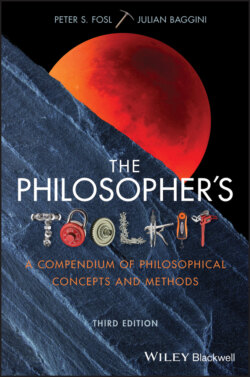Читать книгу The Philosopher's Toolkit - Julian Baggini, Julian Baggini - Страница 57
1.8 Refutation
ОглавлениеSamuel Johnson was not impressed by Bishop George Berkeley’s argument that material substance does not exist. In his Life of Johnson (1791) James Boswell reported that, when discussing Berkeley’s theory with him, Johnson once kicked a stone with some force and said, ‘I refute it thus.’
Any great person is allowed one moment of idiocy to go public, and Johnson’s attempt at a refutation must be counted as just such a moment, because he wildly missed Berkeley’s point. The bishop would never have denied that one could kick a stone; he denied that stones properly understood can be conceived to be material substances. But Johnson’s refutation also failed even to be a true refutation, a concept that in philosophy has a precise meaning.
To refute an argument is to show that its reasoning is bad. If you, however, merely register your disagreement with an argument, you are not refuting it – even though in everyday speech people often talk about refuting a claim in just this way. So, how can one really refute an argument?
